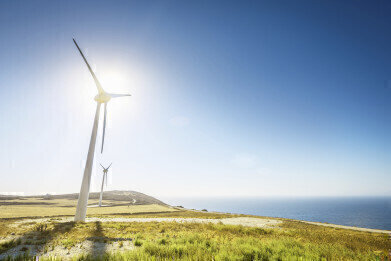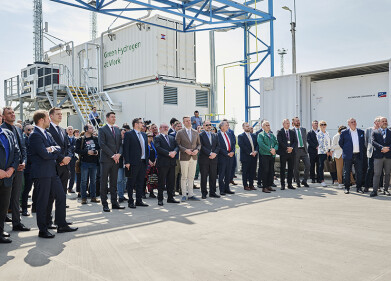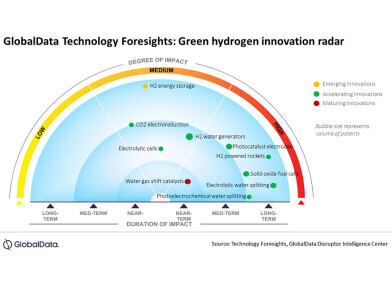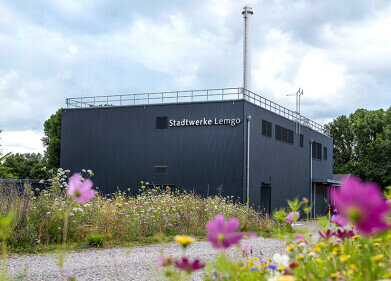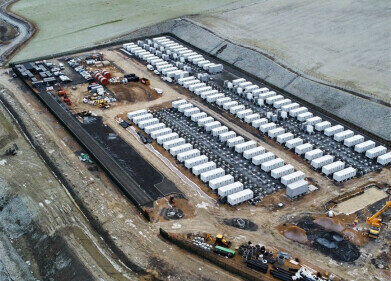Green Energy
How Can we Balance the Challenge of Having a Secure, Affordable and Green Energy Supply in the Future?
Apr 26 2017
At the heart of all energy policy lies the balance between cost, environmental impact, and energy security – the challenge known as the ‘energy trilemma’. The last decade has seen huge change for the global energy industry, and governments have taken quite different approaches to solving this trilemma.
The 8th international conference on clean coal technologies (CCT2017), organised by the IEA Clean Coal Centre, takes place on 8-12 May 2017 in Cagliari, Sardinia. On Wednesday 10th May, the centrepiece panel session entitled ‘The Energy Trilemma’ will look beyond the coal sector to the conflicting goals facing the whole energy industry. Six experts in energy policy and economics will share their diverse visions of how we resolve this energy trilemma through political will and technological advances:
Chandra Bhushan – Deputy Director of the Centre for Science and Environment, India
Nick Butler – Kings College London and Financial Times energy columnist
Craig Morris – Institute for Advanced Sustainability Studies and Energiewende commentator
Charles Soothill – Vice-Chair of the Zero Emissions Platform
Benjamin Sporton – Chief Executive of the World Coal Association
Alessandro Lanza – President of Sotacarbo
A strong political will to cut CO2 emissions in Germany and other European countries has dramatically driven down the cost of renewable energy sources such as wind and solar power, thanks to economies of scale and cheaper production methods. As the giants of India and China have begun to follow suit, these clean technologies have become the world’s fastest growing energy sources, although they still make up only 7% of global generation capacity. This focus on the environmental horn of the trilemma has not come for free, with renewables still requiring subsidies which have meant German energy bills are among the highest in the world. The intermittent nature of wind and solar power also remains a stubborn problem, and countries have struggled to retire fossil fuel plant which is still just as needed on cold and windless nights. Europe’s growing reliance on natural gas imports to provide this back up has raised concerns over the third issue of the security of energy supply.
Meanwhile, the shale gas fracking bonanza has brought a different kind of energy revolution to North America. Technological advances in accessing this unconventional source of natural gas have allowed gas power to overtake coal generation in 2016, and this trend looks set to continue despite the efforts of President Trump to rescue the coal industry. This cheap, local fuel which produces less CO2 than coal has allowed the US to satisfy every aspect of the energy trilemma with little effort, gifting the country with steeper and cheaper cuts in carbon emissions than renewables-rich Germany. However, methane is also a potent greenhouse gas which is released throughout the supply chain – consequently the true environmental impact of this shift may not be as benign as it first appears.
In the face of these changes, coal seems to be permanently on the losing side, although reports of the fuel’s demise may be exaggerated. After more than a decade of extraordinary growth, the construction of new coal power plants has finally slowed in China. In India though, coal capacity is set to double as the country seeks to bring electricity to its huge population at the lowest possible cost. Meanwhile, their neighbours in South-East Asia are also expanding their coal fleets in earnest. Starved of significant domestic natural gas resources, the high price of gas imports in Asia – up to four times that of the US – means that the region is traditionally reliant on local coal supplies to meet the twin demands of cost and energy security. Even Japan, which has no coal of its own, has turned back to the fuel in the wake of the Fukushima disaster, seeing coal imports as an economic means of filling the gap left by the closed nuclear fleet.
If the ambitious climate targets set at COP21 in Paris are to be met, even more dramatic changes in global energy consumption will be needed. At the world’s current rate of CO2 emissions, the carbon budget set by the Paris agreement will be used up in little over 15 years. While the most of the world’s nations appear publicly resolved to prioritise the environment, domestic policy has remained ever conscious of the energy trilemma. If this intractable problem is ever to be solved, new technological solutions must come to the table, and most projections are banking on the rapid development of energy storage or carbon capture and storage technologies. The future of the climate and global economic growth currently rests on this faith in human ingenuity.
Events
Apr 24 2024 Sao Paulo, Brasil
May 05 2024 Seville, Spain
May 13 2024 Munich, Germany
May 23 2024 Beijing, China
May 23 2024 Beijing, China
